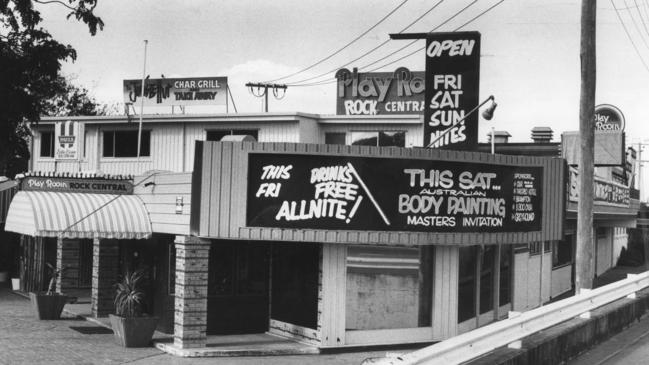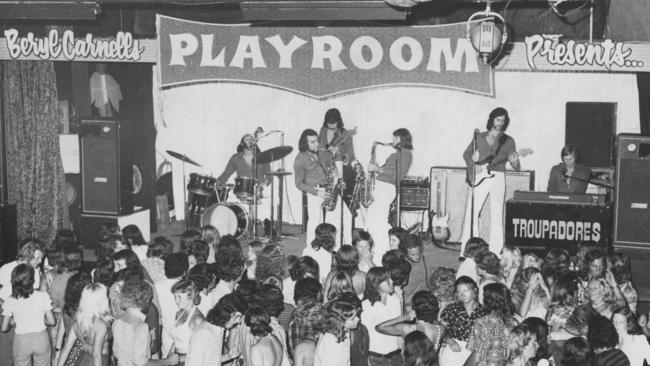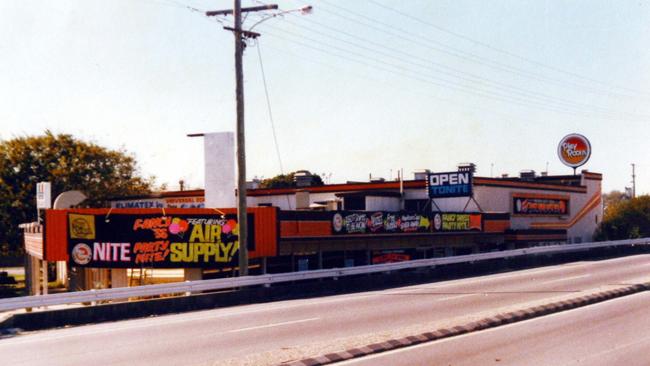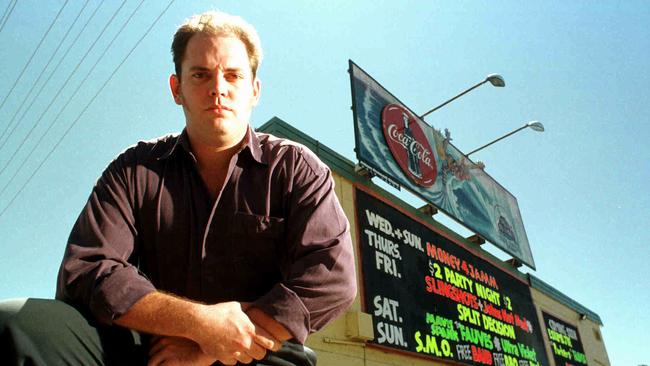The Playroom: Destruction of beloved Gold Coast music venue at Palm Beach in 1999
One of the Gold Coast’s best-loved live music venues was closed and demolished by the state government, with the declaration that the sooner it was gone “the better”. FIND OUT WHY
Entertainment
Don't miss out on the headlines from Entertainment. Followed categories will be added to My News.
A who’s who of music talent performed at the famous Gold Coast Playroom, which was long one of the city’s best-loved venues.
Yet its end came swiftly when, at the end of the 1990s, the decision was made by the state government to redevelop the site.
It’s been 25 years since the announcement that the Playroom would close its doors, yet memories of the venue, its many concerts and the quirky figures who worked there, remain strong.

Its origins could be found 70 years ago when the original Playroom was opened by local entertainer Claude Carnell, who operated it as a cabaret.
However, it moved away from cabaret as the 1950s wore on and by the early 1960s had hosted some of the era’s top acts including the Bee Gees and Peter Allen.
The first Playroom closed in 1962 but was later reopened in a new location by Claude and his wife Beryl in 1966.
This location, next to Tallebudgera Creek in Palm Beach, became the mecca for amazing music in the 1970s, 70s and 1980s.

Australian rock legend Johnny O’Keefe attended and performed at the opening event.
Mrs Carnell took over the nightspot’s licence in 1969 after the couple split and she became the state’s first female nightclub licensee.
The Playroom’s reputation grew through the 1960s and it became a major venue during the 1970s when John Farnham, Cold Chisel, the Boomtown Rats and Midnight Oil all performed on its stage.

Hollywood actor Keanu Reeves also performed in the mid-1990s with his band Dogstar.
Mrs Carnell sold the Playroom in 1986 and it was eventually bought by longtime worker Archie Cox in 1996.
In March 1998 the state government bought the site and allowed the Playroom to continue operator, with then-Minister Merri Rose announcing it would continue into the year 2000 while plans for an expansion of the Tallebudgera Recreation Camp continued.

Mr Cox said at the time he was disappointed by the move.
“As far as we’re concerned it’s a major tourist attraction to the Gold Coast for the music people and we wanted to purchase and develop the nightclub into the coast’s ultimate entertainment site,’’ he said.
“Our family would be interested in buying it but because the Government is involved, banks and private backers won’t get involved because of the Government’s power.’’
“We’d just like to sit down with the Government and look at a long-term deal with them to continue this business.’’

The government was less keen, with then-tourism minister Bob Gibbs told state parliament: ``Quite frankly, the sooner the place is knocked down the better.’’
The two-year reprieve was cut short after just a year when, in late March 1999, the Cox family failed in a last-ditch legal bid to halt the redevelopment. Despite a nationwide protest by radio station Triple J and bands The Living End and the Whitlams, Justice Roslyn Atkinson ruled in favour of the government which demolished the site in April 1999.
The site is now a carpark.
Ms Carnell died in 2008.
Mr Cox, speaking on the 10th anniversary of the Playroom’s demolition decried the death of the city’s live music scene.
`Twenty years ago the Gold Coast had 15 live music venues – we had The Grand, The Pacific, Fisherman’s Wharf, Surfers Paradise Beer garden, Bombay Rock, Broady Hotel, Playroom, The Patch and The Jet Club,’’ he said at the time.
``Since the Playroom was demolished, we have just the one.
``This city absolutely needs somewhere for live music.’’





